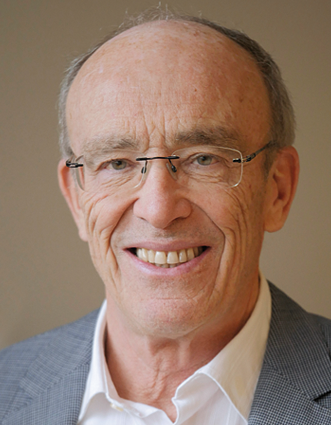
Dr. Ulf Ilg
Structural Material Degradation
BIOGRAPHY
Dr. Ulf Ilg received his first degree as “Diplom-Ingenieur” in Mechanical Engineering from the Technical University Karlsruhe (today KIT), Germany. His Ph.D was obtained at the same university after a scientific research period of 5 years in the field of microstructure and residual stress alteration due to rolling contact fatigue. Since 1981 he was in charge of the German utility EnBW. At that time his major activities had been project engineering for fossil, hydroelectric and new nuclear power plants. Later he was responsible for reactor engineering materials, structural integrity and ageing management at the nuclear power plant Philippsburg (one BWR and one PWR), EnBW Kernkraft (Germany).
How did you get started as an engineer?
When I was young natural science and technical applications had been my favourite subjects at secondary school so I decided to go to a Technical University at the department of Mechanical Engineering. In 1974 I received my first degree as “Diplom-Ingenieur”. After a research period of 5 years in the field of microstructure and residual stress alteration due to rolling contact fatigue I obtained my Ph.D. from the Technical University Karlsruhe, Germany (today KIT).
Your career history?
40 years ago the nuclear industry in Germany played an important role with regard to the electric power supply in the future. In 1981 I started my career at the German Utility EnBW (formerly Badenwerk) being in charge of quality assurance and material engineering during the construction period of the Siemens Convoy NPP Philippsburg 2 (PWR), KKP. After its commissioning my activities had been expanded to project engineering for fossil as well as for hydroelectric power plants. Later I was responsible for reactor engineering materials, structural integrity and ageing management for KKP1 (BWR) as well as for KKP2. As author and co-author I published more than 50 papers on Nuclear Engineering and gave more than 100 lectures in this field. For a long time I was member in several national and international technical committees and chairman of the VGB working group “Materials and Integrity of Nuclear Components” of the German utilities. In March 2014 I retired from EnBW.
How did you get introduced to the ANT International LCC Programme?
For a period of more than 25 years I had an excellent co-operation work with the head of the chemical department at KKP, Dr. Wilfried Rühle. Today he is an ANT expert, he made the proposal to bring my plant experience and expertise to the ANT International LCC Programme.
How has the field of nuclear materials of the Nuclear Steam Supply Systems changed during your career?
In the eighties the German concept of Basis Safety in conjunction with the Break Preclusion philosophy had been established, both mainly influenced by Prof. Karl Kussmaul. KKP2 was the first nuclear power plant in Germany applying the new design criteria for pressure-retaining components belonging to the highest safety class. It was a big challenge to apply the Basis Safety Concept also for the older BWR KKP1 in the frame of many backfitting projects e.g. the complete renewal of the feedwater and main steam lines within the containment.
What do you foresee the future of the nuclear industry and how does the LCC Programme fit in?
Regarding the future of the nuclear industry I see only in a few European countries such as Great Britain and Finland perhaps also Poland or Lithuania starting with new nuclear projects. The future out of Europe will be focussed on India, China and some other Asian countries. For the nuclear industry ANT LCC programme plays an important role transferring the specific knowledge of the Network of ANT experts to the technical community.
How do you spend your leisure time?
In my leisure time I like cycling, hiking, alpine skiing and occupying with a variety of handcraft activities. Beside of this our family has grown so my new role as a grandfather has started.

